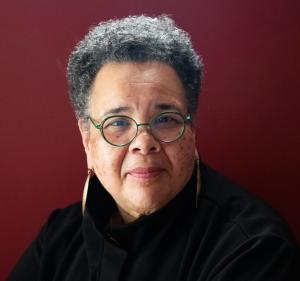Resources

The task is impossible, yet ours to accomplish. Our students need us to shape our classrooms for a future we cannot foresee or anticipate. In the courses we design, our students need us to hone their voices, imaginations, and problem-solving abilities for a future that is unmappable yet will require their navigational skills for survival of our families, neighborhoods, and nation. The world powers are shifting before our very eyes, and we must teach to prepare our students for this change. A call for agency is not a call to act out or act up. Agency has more to do with activating the responsibilities and powers which came with faculty hire when we joined an institution with a commitment to mission. We are bound to the promise of educating – come what may.Typically, the mission of the school has to do with educating for the moment at hand, and with an eye toward the coming future. Faculty, as stewards of knowledge production, have a professional obligation to adapt, pivot, adjust so that education remains future minded – especially in a moment when the future will not look like the past. We are teaching in a moment when we do not have the luxury of thinking that adhering to established traditions will save schools or educate our people into the next fifty years. While we need those with agency to guide us into the new possibilities, the new approaches, the new sensibilities of education, too many school contexts have punished, jettisoned, or abandoned those with agency.Agency, or lack thereof, is one of the perennial themes discussed in gatherings of early career colleagues at Wabash Center. Colleagues invariably bring to the discussion their fears, misinformation, unarticulated needs, desires, and hopes. They disclose their disappointment and misgivings about institutional citizenship and the lack of ownership they feel for their own professional duties. When asked by the workshop leaders why they feel so disregarded, they say:“I assumed that my needs are just like everyone else’s. They (the administration) should know what I need without me asking.”“I don’t ask questions in meetings because I do not want to appear stupid.”“I don’t like to ask too many questions because I am new.”“I really think someone else knows the curriculum better than I do, so I leave it up to the senior scholars.”“I have decided to wait until I am – [tenured, promoted, finished with my book] – THEN I will start speaking up about the workings of the school.”“I do not want to ask for a faculty handbook because they might think I am causing trouble.”“When colleagues ask me to lunch, I say no. I don’t want the department head to think I am colluding with them.”“I say “yes” to every extra assignment. I don’t want colleagues to think I am unavailable or lazy.”“I don’t make use of the teaching center. I don’t want my colleagues to think I do not know how to teach.”“My only mentor is my dissertation advisor who retired three years ago. I do not want colleagues to think I need advice.”“I am going to pitch my idea for a new class after Dr. XXXX retires in two years.”“I do not vote in faculty meetings because I do not want colleagues to think I take sides.”“I wanted to say something, but I did not know how the colleagues would react.”These are the kinds of responses given by the fearful and the distracted. The lack of agency signals that there is a denial of authority, an abdication of responsibility, a giving away of power, a squandering of opportunity. As some of the most educated people on the planet we are asking permission to do the jobs for which we are depended upon. My fear is that now, in this crisis, we are incapable of shaping our classrooms for the unknown future — we might be, as my father would say, “a day late and a dollar short.” As educators, we are in a reckoning moment when we must take agency if our craft of teaching is to be relevant and worthwhile. Moving forward, we know that higher education will need to imagine, invigorate, and conjure up new schools as well as establish new approaches for entire systems of education. Professional timidity will sabotage these efforts. Faculty colleagues who have no agency, no forthrightness, no vision for the new, and who refuse or are unable to take authority for the job will only serve to further compromise the system and foreclose the freedom and creativity needed now and in the future. Leadership that is flexible, resilient, imaginative, and willing to convene open dialogue and struggle with challenging questions is what is needed as we press onward through the fog! Reflection QuestionsWhat are the obstacles to your own agency?How has your agency grown with the seasons of your career?What is at stake should your leadership go unvoiced?Who are your conversation partners for discussing this moment of crisis and the ways it is affecting teaching?Where are the open dialogues that address the new possibilities for the coming future?

Indignant. That word sums up how I felt at a recent departmental Zoom meeting when our chair mentioned that the Dean wanted to know about–and highlight–faculty who made the transition from face-to-face to online learning well. Who, we were asked, had gone above and beyond? My indignation focused on two assumptions behind this request. The first is the failure to see that everyone who is continuing to work with students in this time is going above and beyond, and the second is that the remote options most faculty around the country were asked to throw together in less than a week are not the same thing as online learning. Let me start with the first. The remarkable capacity of my colleagues in my program and around this country to adapt quickly and effectively should be lauded. When life changed suddenly, and while struggling to figure out living situations with partners and children and parents and friends, getting access to needed equipment and bandwidth, figuring out the challenges of groceries and prescriptions, making masks, and coping with the stress, faculty mounted classes and supported students who have often been displaced, are frequently frightened, and sometimes are sick or are struggling with others who have taken ill. Even more, we kept holding virtual committee meetings to determine whether or not students should have options with regard to grades this term, to do the routine but necessary work of our departments and programs, and to consider ways to mark graduations that would be missed. No, we are not the frontline healthcare professionals, first responders, or even the “necessary” workers in our grocery stores and pharmacies, but we are keeping the educational mission of our schools alive. And at many institutions, leaders forgot to say “thank you” to the faculty for doing what was demanded and doing it in the best way folks could manage from the places where they were. Many faculty also simultaneously found out that what works well in the face-to-face environment in terms of preparation and activity is not often what works best online. I have been teaching fully online courses in a primarily face-to-face department for more than 15 years and so my classes this term were set. But what I saw at my institution and in online forums when helping others get ready to go remote was faculty quickly recognizing that the tricks of our trade in the traditional classroom do not transfer readily to the digital world. Indeed, even when faculty want to do some of the “simple” best practices, like making useful short video lessons, it is not as easy as it seems. Then, for those “live” sessions, there are the joys of losing connections or having things freeze up or drop at key moments. And lots of faculty now know that our supposedly digitally savvy students are less so than we might think. That is before you even get to structuring and pacing sound learning activities and assignments that evaluate student progress toward learning goals or planning for meaningful student interaction or group work. In pondering these pedagogical learning curves, it becomes clear that if this pandemic keeps us physically distanced from one another into the next academic year, many faculty will need more help thinking about how to mount classes that make the best use of the platforms and materials that are available to do a fully online course. And more help to feel less swamped. In addition, we are also now also seeing that the policies of many of our institutions are not geared appropriately to this effort. How we think about seat time and contact hours, faculty workload, office hours, evaluation, or even the academic calendar itself, are for a world we are not living in right now. Indeed, they are for a world that has been disappearing for a long time. These concerns prompt even more about other areas of our work life. What about the health and well-being of the journals and publication houses? What about the conferences where we interact with our colleagues and learn? What about our granting agencies? How will changes in these areas impact tenure and promotion considerations? Will this economic environment sound the final death knell for tenure? Will we have students? Will we have support from our states? We do not know. Many of us remember all too well the struggles of education post-2008. Now we must also wonder for ourselves: Will new contracts even come? What will the post-pandemic economy hold? We cannot control much of what happens. But many of these issues are about academic governance. And while we have all been working hard while worrying not just about our immediate health, we also must think ahead. If that future is not to be dictated solely down the administrative chain, faculty are going to have to be ready to lead, and perhaps must do this work in the near term--likely over the summer. Now is the time to realize that faculty who adapted quickly and capably in the classroom can also offer some powerful insight into how to plan for the next phase. And so indignant is my word. Indeed, I could not help but think that many of our leaders should be less worried about calling out who we should give a gold star to for the best transition, and more concerned with marshaling the expertise at their fingertips to start planning for the future. Don’t give us pats on the head. Use our knowledge, listen to our voices, and practice sharing governance. Now is the time to call us together to work toward a future in higher education. There is much to be done.